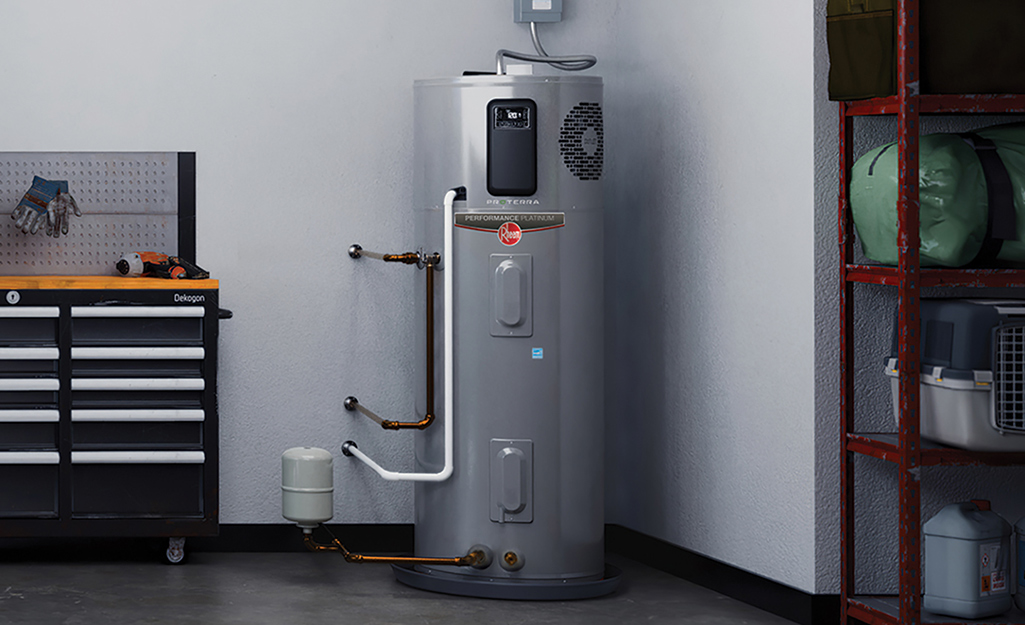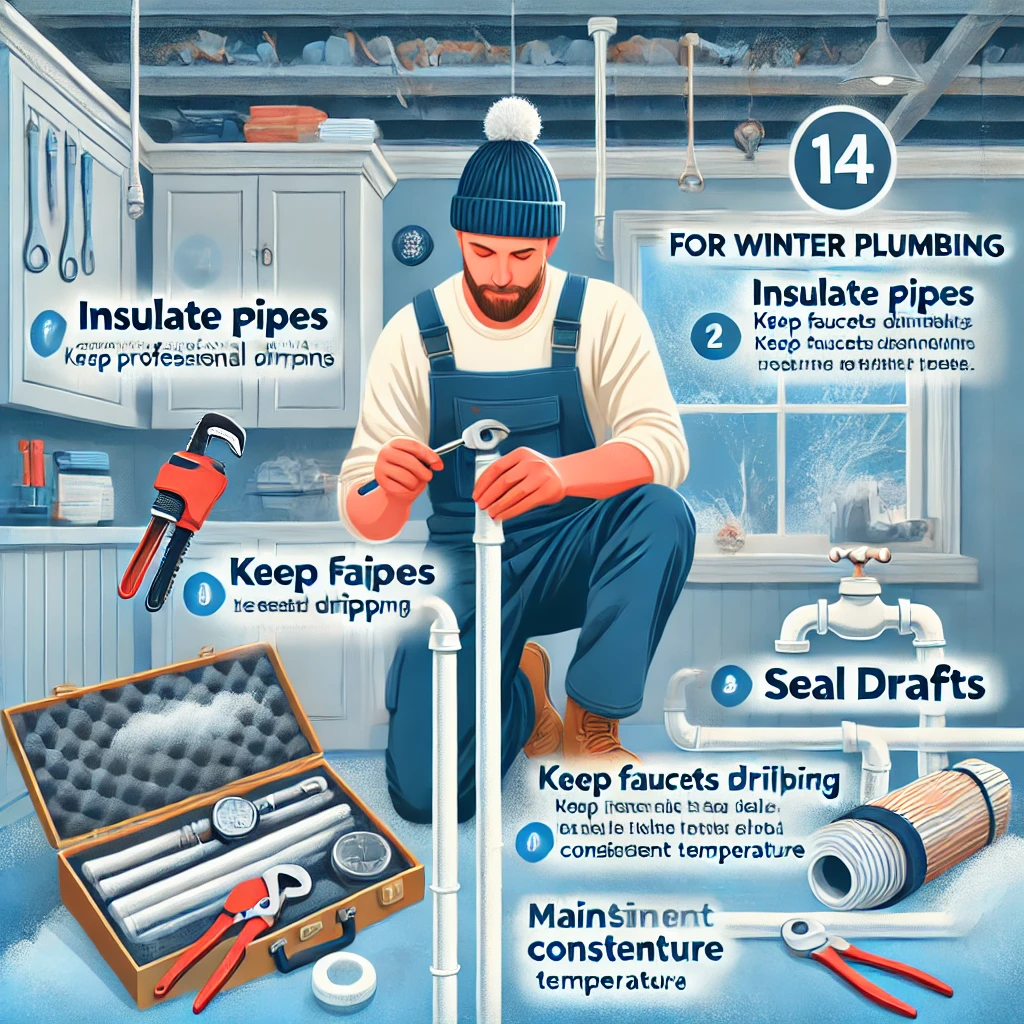Commercial plumbing involves a complex network of pipes, fixtures, and systems designed to handle the high demands of business environments. This comprehensive guide will explore the intricacies of commercial plumbing, including its components, importance, common challenges, maintenance strategies, compliance with regulations, and the impact of technological advancements.
Understanding Commercial Plumbing
Commercial plumbing differs significantly from residential plumbing in terms of scale, complexity, usage patterns, and regulatory requirements. It caters to a variety of establishments such as offices, restaurants, shopping centers, and industrial facilities, each with unique plumbing needs.
Key Components of Commercial Plumbing
- Water Supply Systems: These systems are designed to handle high volume usage, ensuring consistent water flow for activities like washing, cooking, and sanitation.
- Drainage Systems: Larger and more complex than residential systems, they include floor drains, grease traps, and industrial waste disposal units.
- Restroom Facilities: Multiple stalls, urinals, and commercial-grade toilets and sinks are standard in commercial restrooms.
- Water Heating Solutions: Large capacity water heaters or boiler systems to meet the high demand for hot water.
- Specialized Fixtures and Equipment: Depending on the business type, additional fixtures like industrial sinks, spray faucets, and hose connections may be required.
Importance of Efficient Commercial Plumbing
Efficient commercial plumbing is essential for:
- Operational Efficiency: Minimizing disruptions and maintaining productivity.
- Health and Safety: Ensuring sanitary conditions and meeting health regulations.
- Environmental Compliance: Adhering to environmental standards and water conservation practices.
- Cost Management: Reducing water and energy consumption to lower operating costs.
Common Challenges in Commercial Plumbing
- Frequent Clogs and Blockages: High usage often leads to clogged toilets, sinks, and drains.
- Leaks and Pipe Damage: Due to constant use, commercial plumbing systems are more prone to leaks and wear.
- Grease and Waste Management: Particularly in restaurants, managing grease and waste requires specialized solutions.
- Water Pressure Issues: Maintaining consistent water pressure is challenging in large buildings.
- Compliance with Health and Safety Standards: Regularly updating plumbing to meet evolving codes and regulations.
Maintenance and Repair Strategies
Regular maintenance is crucial for the smooth operation of commercial plumbing systems:
- Routine Inspections: Regular checks to identify and address potential issues early.
- Preventive Maintenance: Cleaning drains, inspecting pipes, and servicing equipment to prevent breakdowns.
- Emergency Response Plans: Having protocols in place for handling plumbing emergencies efficiently.
- Upgrading Systems: Retrofitting older systems with modern, efficient technologies.
Water Conservation in Commercial Plumbing
Water conservation is a growing concern in commercial plumbing:
- Low-Flow Fixtures: Installing faucets, toilets, and urinals designed to use less water.
- Water Recycling Systems: Implementing systems to reuse water where possible.
- Leak Detection Systems: Early identification of leaks to prevent water wastage.
- Sustainable Practices: Encouraging responsible water use within the establishment.
Regulatory Compliance
Commercial plumbing must adhere to strict building codes, health regulations, and environmental standards:
- Code Compliance: Ensuring all plumbing work meets local building codes.
- Health and Safety Regulations: Complying with sanitation and safety standards, especially in food service and healthcare facilities.
- ADA Compliance: Providing accessible restroom facilities as per the Americans with Disabilities Act.
Technological Advancements in Commercial Plumbing
Advancements in technology are revolutionizing commercial plumbing:
- Automated Sensor Fixtures: Touchless faucets and toilets for improved hygiene.
- Smart Water Management Systems: IoT-enabled systems for monitoring and managing water usage.
- Eco-Friendly Solutions: Innovations in water treatment and recycling technologies.
Dealing with Commercial Plumbing Emergencies
Rapid response to plumbing emergencies is critical to minimize business disruption:
- 24/7 Availability: Ensuring access to emergency plumbing services at all times.
- Professional Expertise: Skilled plumbers equipped to handle complex commercial plumbing issues.
- Preventive Strategies: Implementing measures to reduce the risk of major emergencies.
DIY vs Professional Commercial Plumbing Services
Professional services are essential for complex commercial plumbing needs:
- Expert Knowledge: Understanding the intricacies of commercial systems.
- Advanced Tools and Equipment: Utilizing specialized tools for effective problem-solving.
- Compliance Assurance: Ensuring all work is up to code and standards.
Environmental and Health Considerations
Commercial plumbing has a significant impact on the environment and public health:
- Sustainable Practices: Reducing water and energy consumption.
- Hygiene and Sanitation: Maintaining cleanliness in food preparation and public restroom areas.
- Waste Management: Proper disposal of hazardous materials and waste.
Future Trends in Commercial Plumbing
The future of commercial plumbing lies in sustainability and smart technology with an increasing focus on eco-friendly practices and automation. Key trends include:
Water Conservation Technologies: Innovations like low-flow fixtures and greywater recycling systems will become more prevalent, helping businesses reduce water usage and costs.
Smart Plumbing Systems: Integration of IoT (Internet of Things) devices for real-time monitoring and management of plumbing systems will enhance efficiency and predictive maintenance, leading to fewer emergencies and disruptions.
Green Building Practices: The adoption of green building standards, such as LEED certification, will influence commercial plumbing designs to be more environmentally sustainable.
Advanced Filtration and Purification: As water quality becomes a global concern, advanced filtration systems that ensure clean and safe water supply will be integral in commercial plumbing.
Automation and AI: The use of artificial intelligence for managing and optimizing plumbing systems will grow, enabling more efficient water and energy use.
Building Information Modeling (BIM)
This technology will play a bigger role in plumbing design, allowing for more accurate planning and implementation of complex systems.
Hybrid Water Heating Solutions: Combining traditional water heating methods with renewable energy sources, like solar, will become more common, reducing reliance on fossil fuels.
Focus on Health and Sanitation: Post-pandemic, there will be a greater emphasis on touchless fixtures and sanitation technologies to prevent the spread of germs in public and commercial spaces.
Regulatory Compliance and Sustainability Reporting: Businesses will increasingly adopt practices that not only comply with regulations but also demonstrate their commitment to sustainability.
Educational and Training Programs: As technology evolves, so will the need for skilled professionals who understand the complexities of modern commercial plumbing systems.
As we focus on 2024 and the years ahead, These trends indicate a move towards more efficient, intelligent, and environmentally responsible commercial plumbing solutions.
Conclusion
The landscape of commercial plumbing is evolving rapidly, propelled by advancements in technology and a growing commitment to sustainability. The integration of smart technologies, water conservation measures, and eco-friendly practices are not just trends but are becoming the new standard in the plumbing industry.
These innovations promise not only to enhance efficiency and reduce environmental impact but also to offer greater comfort and health benefits in commercial spaces. As the industry continues to embrace these changes, the role of skilled professionals becomes increasingly vital, highlighting the need for ongoing education and training in the latest plumbing technologies and sustainable practices.
Looking ahead, the future of commercial plumbing is poised to be more intelligent, efficient, and environmentally responsible, reflecting a broader shift towards sustainability in the building industry. This shift not only aligns with global environmental goals but also offers economic benefits, driving the industry towards a more sustainable, cost-effective, and technologically advanced future.





